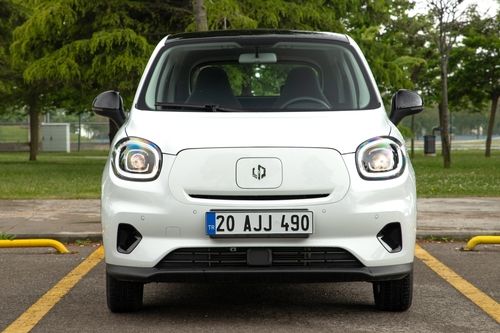All You Should Know About Zero Depreciation Car Insurance
Written by Upstox Desk
Published on July 24, 2025 | 5 min read

It is not a secret that one of your most prized possessions, your car, is a depreciable asset. It loses a significant amount of value the moment you take it out of the showroom. With continuous usage, normal wear and tear result in depreciation of its overall value. If you have made a motor insurance claim, you might have noticed that standard policies deduct the depreciation value of replaced parts, leaving you to bear a portion of the cost.
However, you can avoid paying out-of-pocket costs if you have opted for a zero depreciation (also known as zero dep cover or bumper-to-bumper cover) add-on. This is one of the most important add-ons that enhance the value of your policy and is critical for high-end vehicles and new cars.
Let us walk you through everything you need to know about the zero depreciation car insurance add-on.
What is a Zero Depreciation Add-on?
Let us set the record straight: zero-dep or bumper-to-bumper is an optional add-on offered with your comprehensive car insurance policy. It is not a category of car insurance. With this add-on, you are ensured of receiving the full amount, without any deduction for depreciation on your car’s parts. Unlike a standard comprehensive policy, which factors in wear and tear, this cover allows maximum claim payout on repairs and part replacements.
How Does Zero Depreciation Work?
Let us understand this with an example. Suppose your car is covered by a standard motor insurance policy (comprehensive) without any zero-dep add-on chosen. In case the car is damaged and you claim motor insurance, the insurer will deduct depreciation on parts like plastic, rubber, and metal, leaving you to pay the rest.
However, had you opted for a zero-depreciation add-on for your car, the insurer would have paid the entire cost for replaced parts, regardless of their age, usage, and depreciation charged. This means higher claim payouts and less out-of-pocket expense for you. It’s especially useful for newer vehicles where even minor repairs can get expensive due to part costs.
What is Covered Under Zero Depreciation Add-On?
Your zero-dep add-on will cover the entire cost of the replaced parts without considering depreciation. It typically covers:
-
Plastic, rubber, and nylon parts
-
Fibre glass components
-
Glass and metal parts
-
Paintwork and repainting costs
-
Battery (depending on the insurer’s terms).
What is Not Covered Under the Zero Depreciation Add-On?
Zero depreciation add-on provides enhanced coverage, but there are a few exceptions. These are the exclusions that apply:
-
Regular wear and tear of tyres, tubes, and batteries
-
Engine damage due to oil leakage or water ingress
-
Mechanical or electrical breakdown not caused by an accident
-
Claims beyond the allowable number (usually 1–2 per policy year)
-
Damages from illegal driving or using the vehicle outside the policy terms.
What is the Eligibility, and Who are the Ideal Buyers?
Zero Depreciation Cover is often opted for on cars up to five years old. However, there are a few insurance companies that can offer this cover beyond this limit, subject to a comprehensive vehicle inspection. However, this add-on is best suited for:
-
New car owners who want to protect their investment
-
Luxury car owners, where part replacements are expensive
-
Drivers in accident-prone areas or with frequent city usage
-
First-time car buyers seeking peace of mind during claims
What is the Cost of the Zero Depreciation Add-On?
It depends on your car and its age. Naturally, if you have a new high-end luxury car, including a zero-depreciation cover would cost you more. It is typically 15-20% more than the standard comprehensive policy.
What are the Pros and Cons of Zero Dep Insurance Cover?
Here is a table depicting the pros and cons of this very popular add-on:
Zero Depreciation Car Insurance Add-On: Pros and Cons
| Pros | Cons |
|---|---|
| Full claim amount without depreciation deduction | Higher premium cost (15–20% increase) |
| Covers plastic, rubber, and fibre parts | Limited number of claims per policy year |
| Ideal for new, luxury, or high-maintenance cars | Not available for vehicles older than 5 years (few exceptions) |
| Minimises out-of-pocket expenses during repairs | May not be cost-effective for older or budget cars |
Summing up
Zero-dep or bumper-to-bumper add-on is an excellent addition to your car’s insurance coverage. It is ideal for people who seek comprehensive car protection. While the premium is slightly higher, it offers peace of mind during claims by covering full repair costs. Eventually, it all boils down to premium affordability. If you can afford to pay 15-20% more than the standard policy, there are many reasons to choose this add-on.
FAQs
What is zero-depreciation car insurance?
An add-on to a comprehensive policy that waives depreciation deductions on replaced parts, allowing you to claim the full repair cost.
Who should consider buying zero depreciation cover?
It’s ideal for owners of new (up to 5–7 years old) or luxury vehicles, city drivers, and inexperienced motorists seeking maximum claim benefits.
Can I make unlimited claims under the zero depreciation add-on?
No, insurers typically limit it to 1–2 claims per policy year, beyond which standard depreciation applies.
Does zero depreciation cover routine wear and tear?
No, it only applies to repair or replacement post-accident and excludes general wear, tyre ageing, mechanical breakdowns, or service items.
How much does zero depreciation cover?
It increases your premium by around 15%–20%, but this extra cost is often offset by reduced out-of-pocket expenses during claims.
About Author
Upstox Desk
Upstox Desk
Team of expert writers dedicated to providing insightful and comprehensive coverage on stock markets, economic trends, commodities, business developments, and personal finance. With a passion for delivering valuable information, the team strives to keep readers informed about the latest trends and developments in the financial world.
Read more from UpstoxUpstox is a leading Indian financial services company that offers online trading and investment services in stocks, commodities, currencies, mutual funds, and more. Founded in 2009 and headquartered in Mumbai, Upstox is backed by prominent investors including Ratan Tata, Tiger Global, and Kalaari Capital. It operates under RKSV Securities and is registered with SEBI, NSE, BSE, and other regulatory bodies, ensuring secure and compliant trading experiences.

























